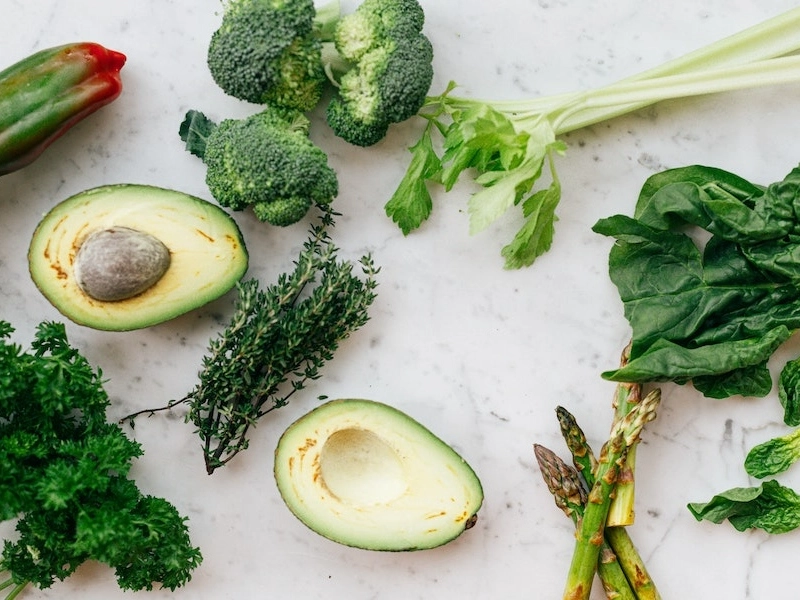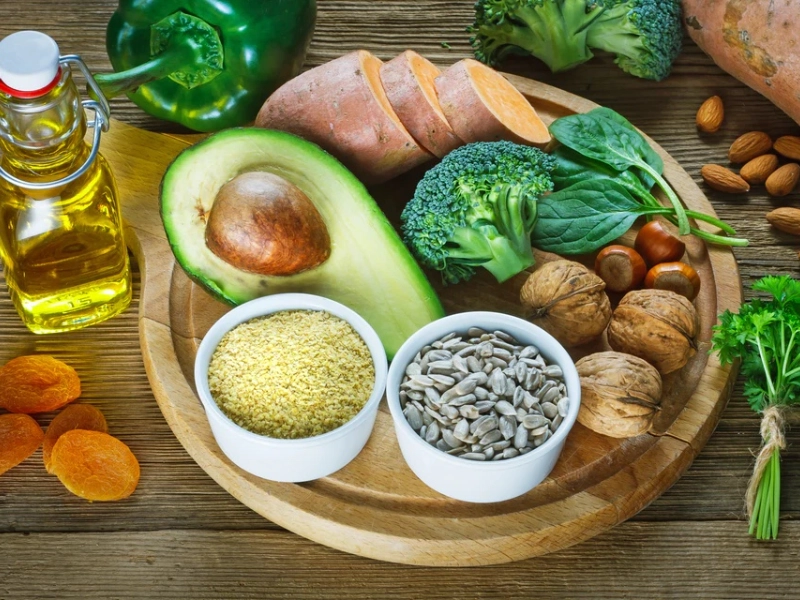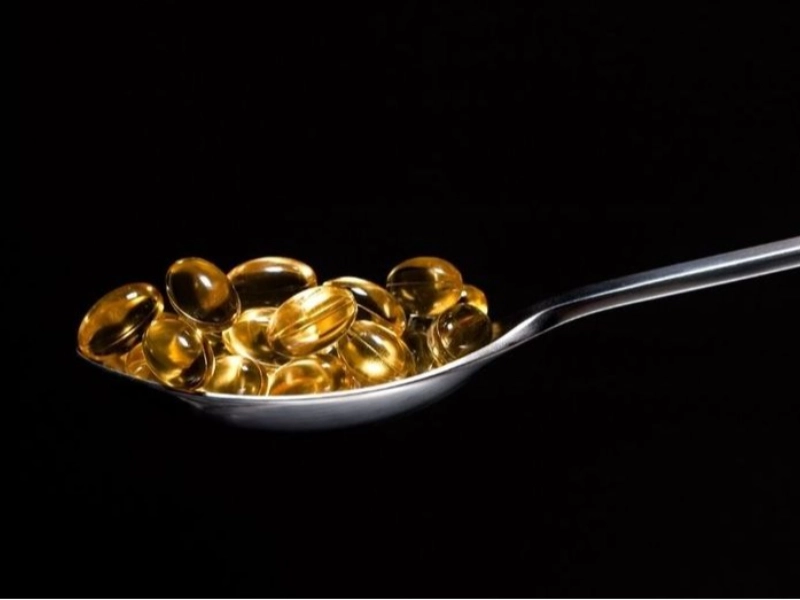Advertisement

Advertisement
1. Realising Inflammation Natural reaction of the body to damage or infection is inflammation. It is a defence mechanism of the immune system that keeps the body free from dangerous stimuli such irritants, damaged cells, or pathogens. Although acute inflammation is a required step for healing, persistent inflammation can cause heart disease, diabetes, and autoimmune conditions among other health problems. General health depends on the management of inflammation, hence nutrition is quite important in this process.
2. Vitamin E: Its Function A fat-soluble antioxidant, vitamin E is absolutely essential in shielding cells from oxidative damage and inflammation. It appears in many forms; in humans, alpha-tocopherol is the most active. Mostly present in nuts, seeds, vegetable oils, and green leafy vegetables, this vital nutrient is An essential friend in control of inflammation, vitamin E promotes the immune system and helps preserve the integrity of cell membranes.

3. Vitamin E's Antioxidant Effects Through its antioxidant qualities, vitamin E mostly supports a healthy inflammatory response. When the body's free radical count is off-balance with its antioxidants, oxidative stress results. Damage of cells and tissues by free radicals can cause inflammation and chronic illnesses. Vitamin E helps to stop the start of inflammation by neutralising free radicals and therefore lowering oxidative stress. Maintaining general health depends critically on vitamin E's protection of cells from harm.
4. Regulation of Immune Response Vitamin E is well recognised to alter the immune response, thus improving the body's capacity to fight infections and so reducing too strong inflammation. It aids in control of the synthesis of cytokines, signalling molecules that induce inflammation. Vitamin E can assist to preserve a normal inflammatory response by balancing pro- and anti-inflammatory cytokines. Preventing chronic inflammation and connected health problems depends on this control.
5. Boosting Skin Health Most people agree that vitamin E improves skin condition. It guards the skin against environmental toxins and UV radiation-induced oxidative damage. Skin inflammation might cause psoriasis, eczema, and acne among other disorders. Including vitamin E into the diet or applying topical treatments including this vitamin will help people support skin condition and lower inflammation. Its part in encouraging skin healing emphasises even more the need of vitamin E in control of inflammatory reactions.

6. Cardiovascular Health: Vitamin E One major factor causing cardiovascular disorders is persistent inflammation. Because vitamin E lowers inflammation and oxidative stress, it has been linked with better heart health. Studies indicate that by enhancing endothelial function and lowering arterial stiffness, enough vitamin E intake can help to minimise the risk of heart disease. Vitamin E supports a healthy inflammatory response, therefore improving the general state of the cardiovascular system.
7. Vitamin E Dietary Sources Including dietary sources of vitamin E in your meals will help you to maximise its advantages for a normal inflammatory response. Foods high in vitamin E abound in almonds, sunflower seeds, hazelnuts, spinach, and avocados. Including these foods in a balanced diet can help guarantee enough consumption of this essential nutrient. For cooking and salad dressings, also take into account utilising healthy oils strong in vitamin E, such olive and sunflower oils.
8. Notes and Additional Thoughts Although eating foods provides the best supply of vitamin E, some people could think about supplements particularly if their dietary needs cannot be satisfied by food alone. Before beginning any supplements, though, it is advisable to see a medical practitioner since too high vitamin E intake might cause side effects. The greatest method to support a good inflammatory response is with a balanced diet emphasising whole foods.

9. Lifestyle elements Affecting inflammation Apart from vitamin E, several lifestyle choices might affect the degree of inflammation in the organism. Reducing chronic inflammation can be accomplished by regular physical activity, a balanced diet high in fruits and vegetables, enough sleep, and stress-reducing strategies. Adopting a whole approach to health helps people maximise the benefits of vitamin E and encourage a normal inflammatory response.
10. Review of Vitamin E's Effects on Inflammation Through its antioxidant qualities, immunological modulation, advantages for skin and cardiovascular health, vitamin E is absolutely essential in promoting a normal inflammatory response. Including foods high in vitamin E into your diet will help you properly control inflammation and guard against oxidative stress. Knowing the value of this nutrient in preserving general health will enable people to choose their diets with awareness for supporting their inflammatory reaction and well-being.

 3. Vitamin E's Antioxidant Effects Through its antioxidant qualities, vitamin E mostly supports a healthy inflammatory response. When the body's free radical count is off-balance with its antioxidants, oxidative stress results. Damage of cells and tissues by free radicals can cause inflammation and chronic illnesses. Vitamin E helps to stop the start of inflammation by neutralising free radicals and therefore lowering oxidative stress. Maintaining general health depends critically on vitamin E's protection of cells from harm.
4. Regulation of Immune Response Vitamin E is well recognised to alter the immune response, thus improving the body's capacity to fight infections and so reducing too strong inflammation. It aids in control of the synthesis of cytokines, signalling molecules that induce inflammation. Vitamin E can assist to preserve a normal inflammatory response by balancing pro- and anti-inflammatory cytokines. Preventing chronic inflammation and connected health problems depends on this control.
5. Boosting Skin Health Most people agree that vitamin E improves skin condition. It guards the skin against environmental toxins and UV radiation-induced oxidative damage. Skin inflammation might cause psoriasis, eczema, and acne among other disorders. Including vitamin E into the diet or applying topical treatments including this vitamin will help people support skin condition and lower inflammation. Its part in encouraging skin healing emphasises even more the need of vitamin E in control of inflammatory reactions.
3. Vitamin E's Antioxidant Effects Through its antioxidant qualities, vitamin E mostly supports a healthy inflammatory response. When the body's free radical count is off-balance with its antioxidants, oxidative stress results. Damage of cells and tissues by free radicals can cause inflammation and chronic illnesses. Vitamin E helps to stop the start of inflammation by neutralising free radicals and therefore lowering oxidative stress. Maintaining general health depends critically on vitamin E's protection of cells from harm.
4. Regulation of Immune Response Vitamin E is well recognised to alter the immune response, thus improving the body's capacity to fight infections and so reducing too strong inflammation. It aids in control of the synthesis of cytokines, signalling molecules that induce inflammation. Vitamin E can assist to preserve a normal inflammatory response by balancing pro- and anti-inflammatory cytokines. Preventing chronic inflammation and connected health problems depends on this control.
5. Boosting Skin Health Most people agree that vitamin E improves skin condition. It guards the skin against environmental toxins and UV radiation-induced oxidative damage. Skin inflammation might cause psoriasis, eczema, and acne among other disorders. Including vitamin E into the diet or applying topical treatments including this vitamin will help people support skin condition and lower inflammation. Its part in encouraging skin healing emphasises even more the need of vitamin E in control of inflammatory reactions.
 6. Cardiovascular Health: Vitamin E One major factor causing cardiovascular disorders is persistent inflammation. Because vitamin E lowers inflammation and oxidative stress, it has been linked with better heart health. Studies indicate that by enhancing endothelial function and lowering arterial stiffness, enough vitamin E intake can help to minimise the risk of heart disease. Vitamin E supports a healthy inflammatory response, therefore improving the general state of the cardiovascular system.
7. Vitamin E Dietary Sources Including dietary sources of vitamin E in your meals will help you to maximise its advantages for a normal inflammatory response. Foods high in vitamin E abound in almonds, sunflower seeds, hazelnuts, spinach, and avocados. Including these foods in a balanced diet can help guarantee enough consumption of this essential nutrient. For cooking and salad dressings, also take into account utilising healthy oils strong in vitamin E, such olive and sunflower oils.
8. Notes and Additional Thoughts Although eating foods provides the best supply of vitamin E, some people could think about supplements particularly if their dietary needs cannot be satisfied by food alone. Before beginning any supplements, though, it is advisable to see a medical practitioner since too high vitamin E intake might cause side effects. The greatest method to support a good inflammatory response is with a balanced diet emphasising whole foods.
6. Cardiovascular Health: Vitamin E One major factor causing cardiovascular disorders is persistent inflammation. Because vitamin E lowers inflammation and oxidative stress, it has been linked with better heart health. Studies indicate that by enhancing endothelial function and lowering arterial stiffness, enough vitamin E intake can help to minimise the risk of heart disease. Vitamin E supports a healthy inflammatory response, therefore improving the general state of the cardiovascular system.
7. Vitamin E Dietary Sources Including dietary sources of vitamin E in your meals will help you to maximise its advantages for a normal inflammatory response. Foods high in vitamin E abound in almonds, sunflower seeds, hazelnuts, spinach, and avocados. Including these foods in a balanced diet can help guarantee enough consumption of this essential nutrient. For cooking and salad dressings, also take into account utilising healthy oils strong in vitamin E, such olive and sunflower oils.
8. Notes and Additional Thoughts Although eating foods provides the best supply of vitamin E, some people could think about supplements particularly if their dietary needs cannot be satisfied by food alone. Before beginning any supplements, though, it is advisable to see a medical practitioner since too high vitamin E intake might cause side effects. The greatest method to support a good inflammatory response is with a balanced diet emphasising whole foods.
 9. Lifestyle elements Affecting inflammation Apart from vitamin E, several lifestyle choices might affect the degree of inflammation in the organism. Reducing chronic inflammation can be accomplished by regular physical activity, a balanced diet high in fruits and vegetables, enough sleep, and stress-reducing strategies. Adopting a whole approach to health helps people maximise the benefits of vitamin E and encourage a normal inflammatory response.
10. Review of Vitamin E's Effects on Inflammation Through its antioxidant qualities, immunological modulation, advantages for skin and cardiovascular health, vitamin E is absolutely essential in promoting a normal inflammatory response. Including foods high in vitamin E into your diet will help you properly control inflammation and guard against oxidative stress. Knowing the value of this nutrient in preserving general health will enable people to choose their diets with awareness for supporting their inflammatory reaction and well-being.
9. Lifestyle elements Affecting inflammation Apart from vitamin E, several lifestyle choices might affect the degree of inflammation in the organism. Reducing chronic inflammation can be accomplished by regular physical activity, a balanced diet high in fruits and vegetables, enough sleep, and stress-reducing strategies. Adopting a whole approach to health helps people maximise the benefits of vitamin E and encourage a normal inflammatory response.
10. Review of Vitamin E's Effects on Inflammation Through its antioxidant qualities, immunological modulation, advantages for skin and cardiovascular health, vitamin E is absolutely essential in promoting a normal inflammatory response. Including foods high in vitamin E into your diet will help you properly control inflammation and guard against oxidative stress. Knowing the value of this nutrient in preserving general health will enable people to choose their diets with awareness for supporting their inflammatory reaction and well-being.